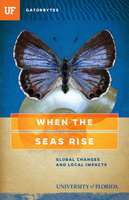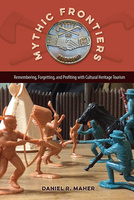
Founded in 1945, the University Press of Florida is the official publisher of the State University System of Florida. UPF has published over 2,500 books since its inception and currently releases approximately 80 new titles each year. Its publishing strengths include archaeology, history, literature, Latin American studies, African American studies, space studies, sustainability, and Florida history and culture. UPF engages educators, students, and discerning readers by producing works of global significance, regional importance, and lasting value.
University Press of Florida also includes the imprint, University of Florida Press.
The Invention of the Beautiful Game
Football and the Making of Modern Brazil
The Diabetes Epidemic
Controlling, Curing, and Prevention
We Will Always Be Here
Native Peoples on Living and Thriving in the South
Kosher Feijoada and Other Paradoxes of Jewish Life in São Paulo
Black Well-Being
Health and Selfhood in Antebellum Black Literature
- Copyright year: 2016
To Render Invisible
Jim Crow and Public Life in New South Jacksonville
African Diasporic Women's Narratives
Politics of Resistance, Survival, and Citizenship
When the Seas Rise
Global Changes and Local Impacts
Mythic Frontiers
Remembering, Forgetting, and Profiting with Cultural Heritage Tourism
Music Everywhere
The Rock and Roll Roots of a Southern Town
Many American college towns have their own story to tell when it comes to their rock and roll roots, but the story of Gainesville, Florida, is unique: dozens of resident musicians launched into national prominence, eight inducted into the Rock and Roll Hall of Fame, and a steady stream of major acts rolled through on a regular basis. From Tom Petty and the Heartbreakers to Stephen Stills and the Eagles’ Don Felder and Bernie Leadon, Gainesville cultivated some of the most celebrated musicians and songwriters of the time.
Ritual, Violence, and the Fall of the Classic Maya Kings
The contributors offer new insights into the Maya "collapse," evaluating the trope of the scapegoat king and the demise of the traditional institution of kingship in the early ninth century AD—a time of intense environmental, economic, social, political, and even ideological change.












